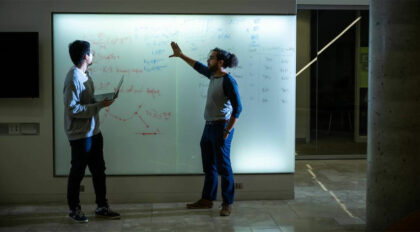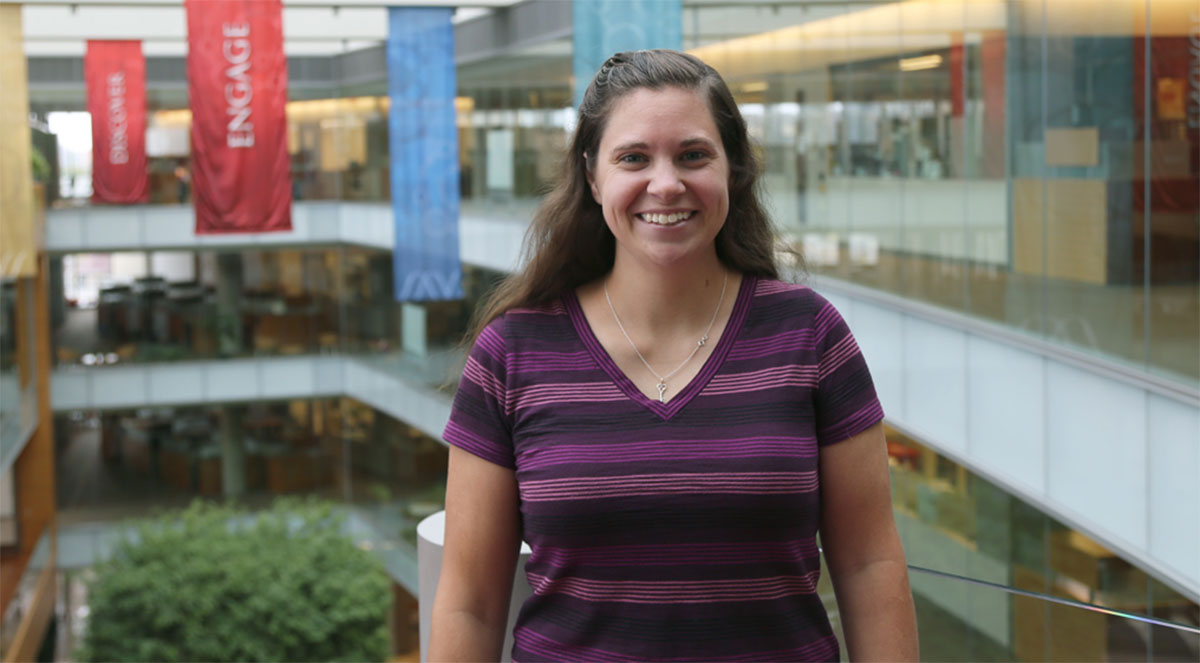Family ties spark lasting passion for science
Growing up in Austin, Texas, Alex Walsh was surrounded by scientific rigor and enthusiasm.
Her grandfather, a professor at the University of Texas, founded its biomedical engineering department and was active in the biphotonic field. Her parents, who left graduate school at Stanford to co-found a software development company, also lit a pathway for Walsh’s development as a scientist.
“I’ve always had an aptitude for science and math, and an innate curiosity. They encouraged me to think about careers in medicine and science, and biomedical engineering seemed like a good direction,” says Walsh, now an associate professor in the Department of Biomedical Engineering at Texas A&M University.
Her academic journey led her to Vanderbilt University, where she earned bachelor’s, master’s and doctoral degrees in biomedical engineering. That’s where, while earning her PhD, she worked alongside Melissa Skala, now a Morgridge investigator.
In Skala’s lab, Walsh focused on developing optical microscopes that could predict drug response for cancer patients using organoids, lab-grown tissues.
“She’s a fantastic mentor. She’s been super supportive of letting me explore ideas, helping to train me to be a good scientist, and teaching me to write grants,” Walsh says. “She was a great example of how to be a scientist but also have a family and collaborate with a large number of diverse people.”
Armed with a PhD, Walsh did postdoctoral work at the U.S. Air Force Research Laboratory at Fort Sam Houston in San Antonio, investigating the effects in infrared light on neurons and cells and developing a fast fluorescence lifetime imaging system.
But Walsh soon found herself missing academics, contact with students, and multidisciplinary work. When Skala left Vanderbilt for Morgridge, there was a chance in 2017 for Walsh to come to Wisconsin and continue her postdoctoral work with her mentor.
“Melissa offered me a job at a really critical time in my career when I had applied for faculty positions and hadn’t found any,” Walsh says. “I couldn’t stay with the Air Force, because federal cuts made that job evaporate. I may not have stayed in science if there hadn’t been a position at Morgridge.”
As an assistant scientist in the lab, Walsh led a project to use non-invasive fluorescence imaging to identify and sort T cells – promising weapons for fighting cancer – for use in immunotherapy treatments.
The technology, which has since been patented, won the 2018 Innovation Award from the Wisconsin Alumni Research Foundation (WARF). The award certificate is displayed prominently on her office wall in College Station.
“I learned a lot from Melissa about how to recruit people who are honest, hard workers. I try really hard to make time for them. I help guide them along the way, but I don’t want to do the work for them. It’s guiding and mentoring without dictating.” Alex Walsh
The Morgridge experience, she says, was foundational in developing her career.
“It was a unique and collaborative place,” she adds. “The Wisconsin ecosystem trained Melissa and I in how to communicate our ideas in a way that WARF patent attorneys could understand. That’s helped me here. We’ve had two disclosures go through and the patents submitted, so it was really valuable.”
After two years in Skala’s Morgridge lab, Walsh landed a faculty position at Texas A&M.
There, she teaches and leads the Quantitative Optical Imaging Laboratory. The lab uses a variety of imaging technologies – including light sheet microscopy, fluorescence imaging, infrared stimulation, and others – to study cell metabolism, drug response, and immune cells.
Her lab staff numbers more than 20 graduate and undergraduates. “I learned a lot from Melissa about how to recruit people who are honest, hard workers. I try really hard to make time for them. I help guide them along the way, but I don’t want to do the work for them. It’s guiding and mentoring without dictating.”
Walsh adds: “My favorite part is working with students, watching them develop their skills. It’s fun to see them become more confident in themselves, and confident in their work.”

Rising Sparks: Early Career Stars
Rising Sparks is a monthly profile series exploring the personal inspirations and professional goals of early-career scientists at the Morgridge Institute.
